A blunt knife can be extremely frustrating and even dangerous to work with in the kitchen. Many home cooks and professional chefs alike often continue using a dull blade, unaware of the potential risks and detrimental effects it can have on food preparation. In this blog post, we will explore the drawbacks of using a blunt knife, the specific problems it causes, and why it's essential to keep knives properly sharp.

Increased Safety Risks
One of the biggest concerns with using a dull knife is the safety hazard it presents. Because the blade is not razor-sharp, you need to apply more force and pressure when cutting. This makes the knife prone to slipping off the food and sliding downward or sideways. Such unpredictable movements make cutting more precarious and significantly raise the chances of the knife missing its mark and hitting your fingers, hands, or wrists. This can lead to painful cuts and injuries that require first-aid or medical treatment. Severe lacerations from a heavy, blunt blade hitting your hand with downward force can damage tendons, nerves, or ligaments.
In addition to the increased risk of injury, a blunt knife can cause you to lose control when cutting harder foods like meat or tough-skinned produce. The knife is more likely to twist in your hand or slip out of position. Losing control of a large chef's knife raises the hazards even further. Simply put, dull knives are far more dangerous than sharp ones in the kitchen. Keeping your blades properly honed lowers these safety risks tremendously.
Greater Exertion and Fatigue
Cutting with a blunt knife also requires significantly more effort and energy. You need to use greater force to get the blade to pass through foods, especially firmer items like carrots, parsnips, meat, or hard cheese. This excessive upward, downward, and sideways force wears out your arm, wrist, and hand faster. It can lead to fatigue, strain, and soreness in the fingers, hand, forearm, or elbow joint. This discomfort can linger for hours or days after working with the knife. The risk of developing repetitive stress injuries increases considerably over time.
Chefs, prep cooks, and avid home cooks often spend hours on end cutting, chopping, mincing, and slicing. A blunt blade subjects them to ergonomic stresses over prolonged periods that a sharp knife avoids. Investing in keeping tools keenly sharp makes food preparation easier and less taxing on muscles, joints, and the skeletal system as a whole. It also helps prevent long-term health issues like arthritis or nerve damage in the wrists and hands.
Slower Food Preparation
Blunt knives also significantly slow down food preparation and cooking overall. Tasks like chopping mirepoix for soups, dicing carrots for a stir fry, or mincing garlic for pasta sauce take far longer with a dull blade. You must saw back and forth using brute force to make headway cutting the food. This wastes time and leads to frustration when the knife just skids over the surface of firmer ingredients like winter squashes or meat. The whole cooking process gets delayed and rushed when using inefficient, dull knives.
Having your knives professionally sharpened regularly saves vast amounts of time in the kitchen. Tasks get completed faster, and you avoid that nagging feeling of wasted effort while prepping food with a blunt tool. Sharpened knives slice through ingredients cleanly and precisely with ease, speed, and uniformity.
Poorer Results and Greater Waste
Blunt knives deliver poorer results when cutting foods. Jagged edges, mangled ingredients, and uneven pieces result from the crushing tearing effects of a dull blade. Food loses structural integrity, shape, and aesthetic appeal. Herbs like cilantro or parsley get bruised and frayed instead of neatly chopped. Tomato slices turn mushy. Carrots end up unevenly hacked instead of evenly diced or bias cut. Crooked, ragged cuts just look less professional.
Beyond aesthetics, dull knives pulverize and damage cell walls in some foods during cutting. This leads to faster oxidation and degradation knife f nutrients. Ingredients will brown faster and lose flavor sooner. Vitamin C in broccoli and peppers deteriorates more rapidly when the vegetable's cells get ruptured and mangled from a blunt blade. This nutrient loss means your dishes won't taste as vibrant.
Blunt knives also cause much more waste as uneven pieces and scraps pile up. Jagged cuts lead to more trimming of misshapen portions. Food is also more prone to getting crushed or juiced rather than sliced cleanly. This spills nutrients and moisture that should stay locked in. All of this waste adds up over time, resulting in lower yields, lost money, and greater garbage. A sharp knife conserves food far better through clean slices.
Increased Microbial Risk
Using a blunt knife poses a greater risk of transferring pathogenic microbes between foods. When a dull blade crushes and smears ingredients, it easily spreads bacteria existing on the surface deeper into the food. Cross-contamination hazards also rise since dull edges do more tearing than clean slicing between ingredients. Dull knives demand more forceful cutting, which means juices, oils, and microorganisms transfer more easily from one food to another. Meticulous sanitation is critical, but a sharp knife still better prevents the spread of contaminants.

Conclusion
While a blunt knife seems to "get the job done," it carries significant downsides: increased safety hazards, physical exertion, tedious preparation, ragged results, wasted food, and higher microbial risk. Keeping your knives professionally sharpened or routinely honing them is essential for optimizing your kitchen work. The minimal investment of time and money pays off in easier, faster prep, greater efficiency, clean cuts, and better artistry. Ultimately, sharp knives make the chore of cooking much more enjoyable. Treat your knives well, and they will treat you and your food well in return.


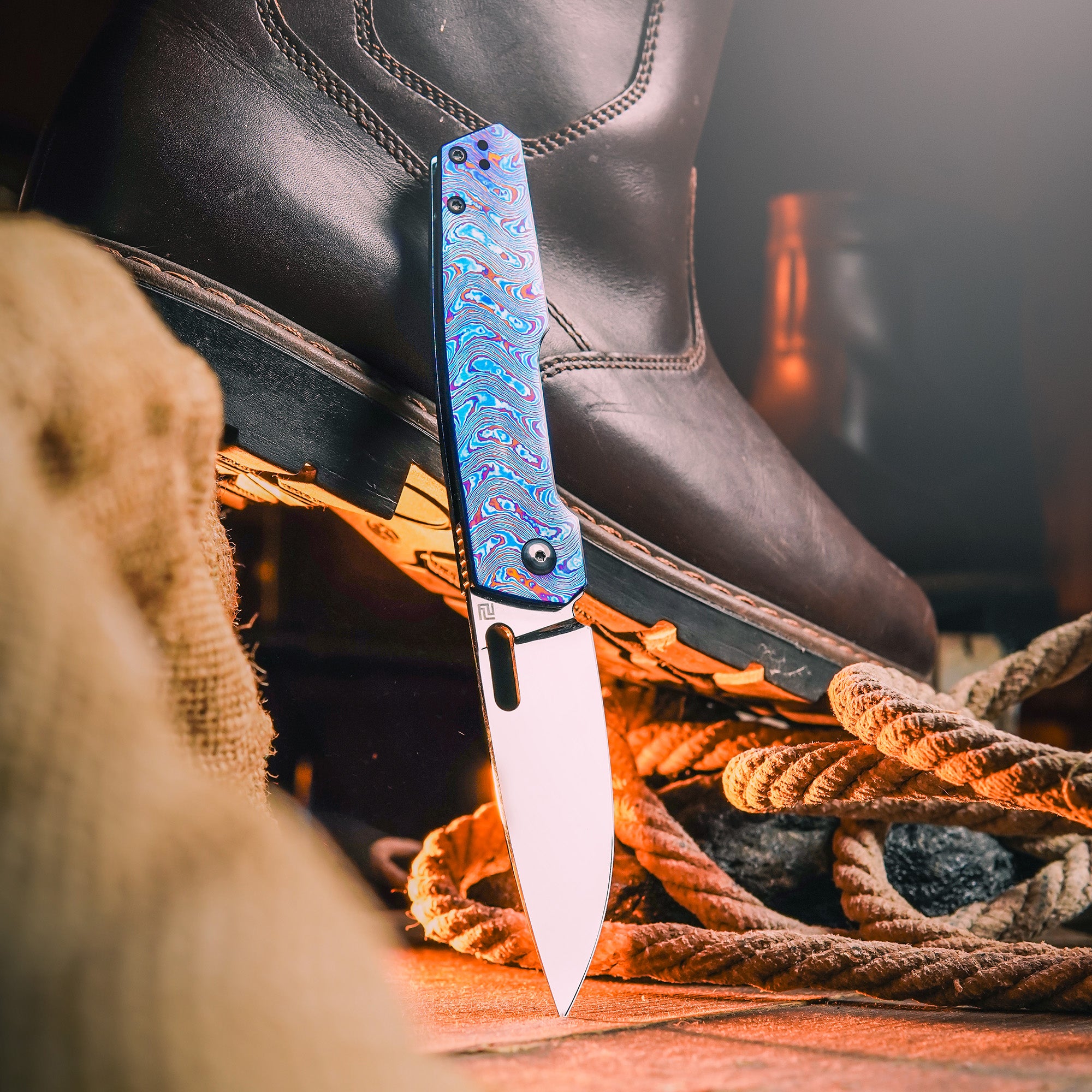
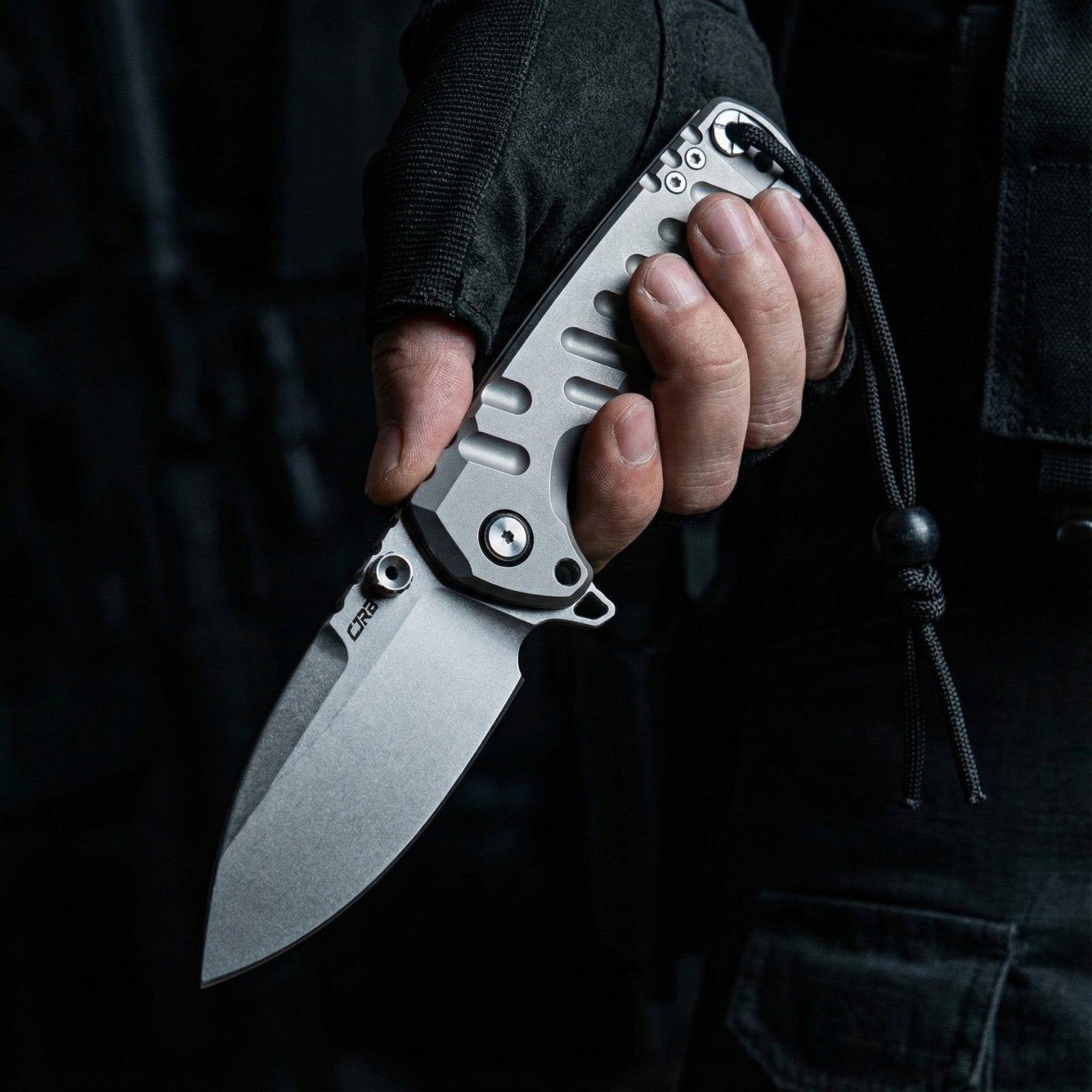
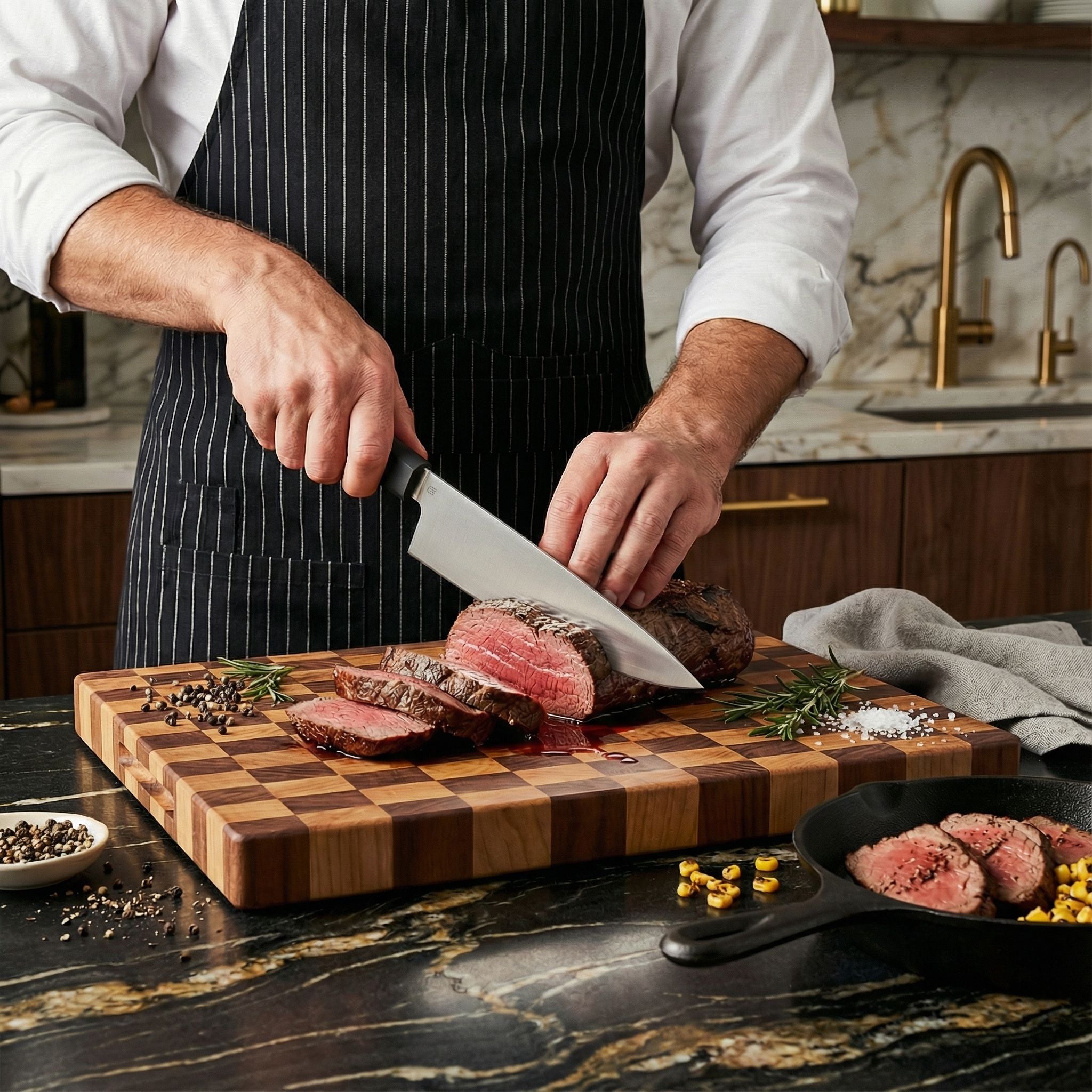
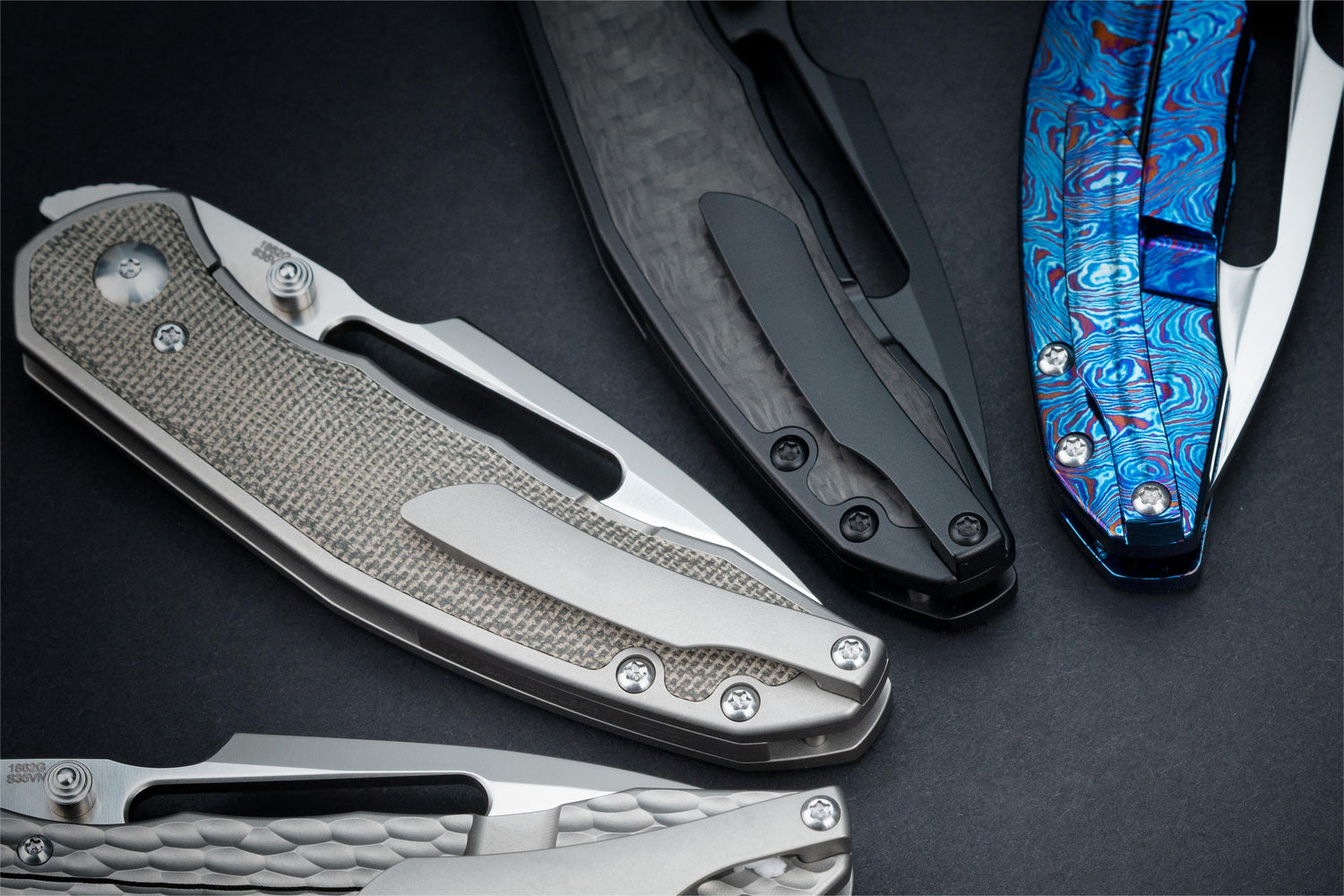
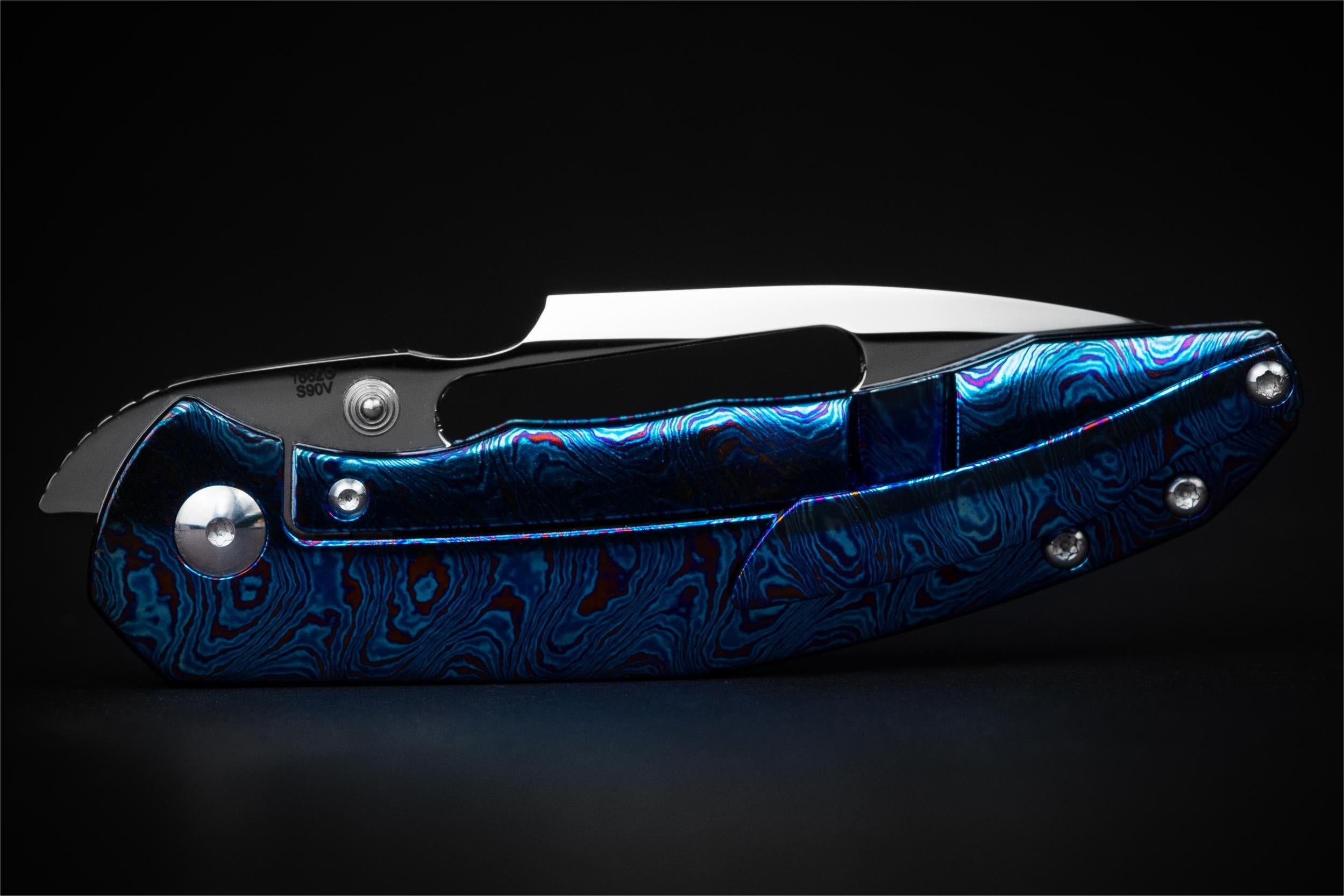


Leave a comment
All comments are moderated before being published.
This site is protected by hCaptcha and the hCaptcha Privacy Policy and Terms of Service apply.